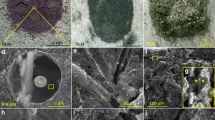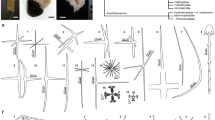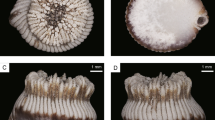Abstract
IN the preliminary account by my friend Prof. Dendy (NATURE, February 7, p. 190) it is difficult to see evidence for the independent organic life of his “scleroplastids”. There is nothing to prove this, hypothesis in the observation that the first rudiment of the spicule in Stelletta is a skeleton-crystal on the tetrahedral system, afterwards overlaid (as we have long known in the tetracrepid desma of Lithistida) with siliceous deposit in amorphous aggregation. Obviously twinning and repetition of branches (also long known) are not arguments against the crystalline character of form in spicules. In 1898 I pointed out certain resemblances to the relations between a symbiotic organism and its host in the relations between a crystal, utilised as a spicule, and the sponge which has secreted it (Proc. Roy. Soc., vol. 64, p. 71). These resemblances seem to have misled Prof. Dendy to his new theory, but he adduces no facts which give evidence for separate organic life in the spicule, or impeach the evidence for its crystalline structure.
This is a preview of subscription content, access via your institution
Access options
Subscribe to this journal
Receive 51 print issues and online access
$199.00 per year
only $3.90 per issue
Buy this article
- Purchase on Springer Link
- Instant access to full article PDF
Prices may be subject to local taxes which are calculated during checkout
Similar content being viewed by others
Author information
Authors and Affiliations
Rights and permissions
About this article
Cite this article
BIDDER, G. The Origin of Sponge-Spicules. Nature 115, 298–299 (1925). https://doi.org/10.1038/115298b0
Issue Date:
DOI: https://doi.org/10.1038/115298b0
Comments
By submitting a comment you agree to abide by our Terms and Community Guidelines. If you find something abusive or that does not comply with our terms or guidelines please flag it as inappropriate.



